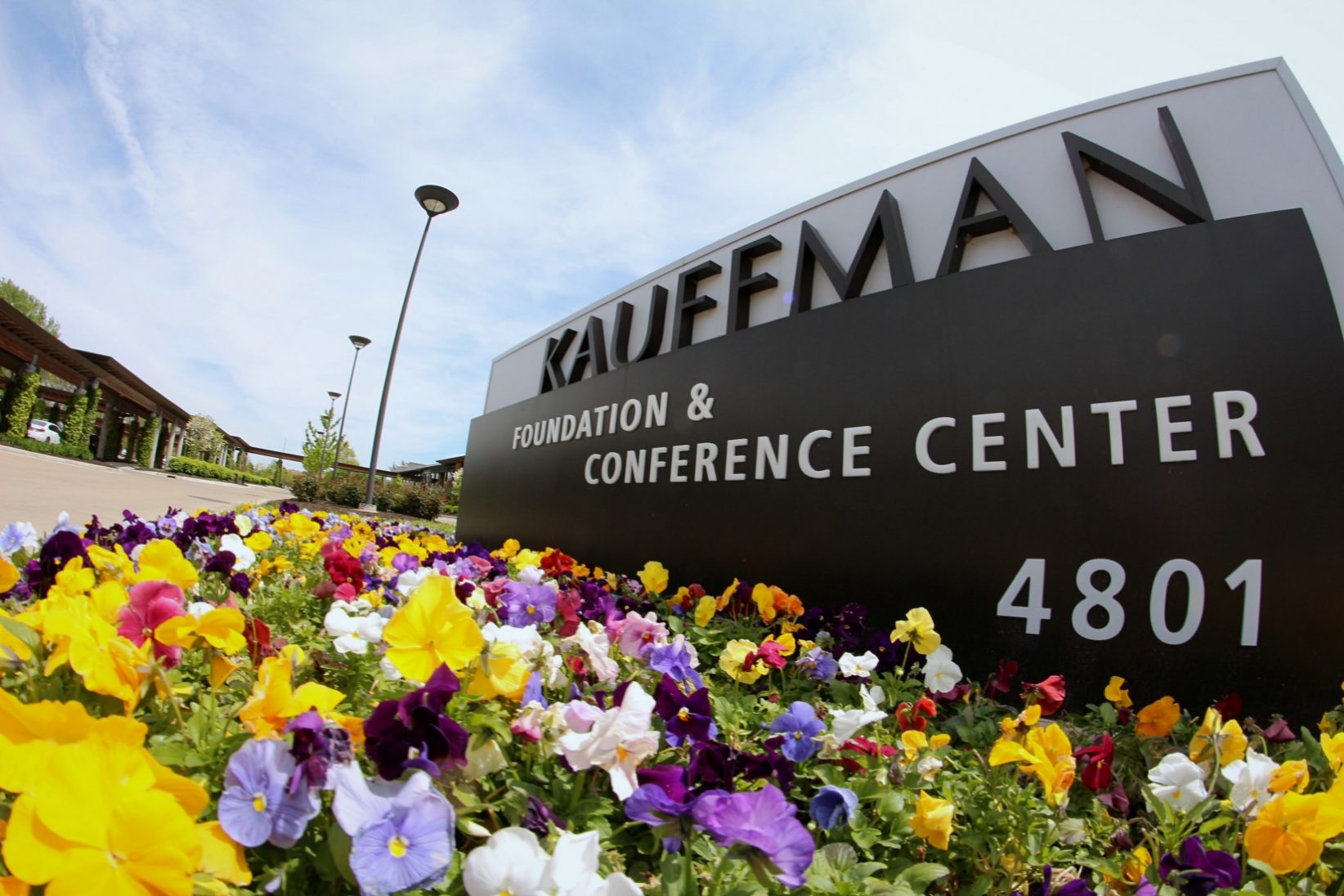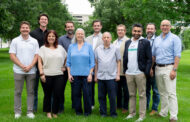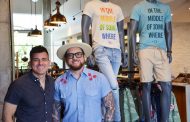If cities could win “most-improved” awards, Kansas City would be taking home a silver medal this year — at least as far as startup growth goes.
The Ewing Marion Kauffman Foundation on Thursday released its “Startup Activity Index” for states and metros. This year, Kansas City climbed a whopping 11 places from 29 to 18, an improvement second only to Orlando’s 12-place jump.
The area’s strong showing has also excited the very leaders who helped put the report together.
“What we’re seeing on this report is that Kansas City is punching above its weight compared to other peer cities,” said Nathan Kurtz, Kauffman’s entrepreneur program officer. “I think that’s really the best story out of this. We’ll be keeping track for future years, but for at least 2016, it’s a fantastic year for entrepreneurship in Kansas City.”
The report each year measures the state of early-stage business, scoring the nation, states and the 40 most-populated metros based on three equally-weighted factors. Those metrics are the rate of new entrepreneurs added to a metro each month, the opportunity to start a new business and startup density.
The City of Fountain’s improved standing among other, larger cities is a good sign that the area is on the right track to maintaining a competitive edge in the future, said Kansas City Mayor Sly James.
“I’m extremely proud of Kansas City’s standing in this index,” Mayor James said. “Research tells us that the economy of the future is based on an individual with an idea — not big box development. Kauffman’s latest report shows that Kansas City is very well positioned to be a leader in startup activity for years to come and that we’re focusing on the right strategies to grow our economy.”
Kansas City experienced remarkable improvements in two of the three key measures that the index looks at.
The first component is the rate of new entrepreneurs each month. In Kansas City, of every 100,000 metro adults, approximately 320 of them became entrepreneurs each month. That’s 39 percent improvement from last year, which saw only 230 of every 100,000 adults becoming entrepreneurs.
Added to that, nearly 78 percent of those entrepreneurs chose to start a business due to opportunity rather than necessity. Kauffman defines necessity as entrepreneurs who, previous to starting their business, were unemployed and looking for a job. Last year’s index had opportunity entrepreneurs at 76.3 percent.
Opportunity entrepreneurship in particular has other underlying implications for startup community health, Kurtz said.
“(The high opportunity entrepreneurship metric) indicates a very strong ecosystem from the standpoint that entrepreneurs are willing to give up something that’s good for the opportunity of something that could be great,” he said. “I think that says a number of things about mindset and a community where entrepreneurs are so supported.”
Last, Kansas City fell slightly in the number of startups hiring employees, although the city still ranked well in this category compared to other metros. Of every 1,000 metro firms to have at least one employee, 77.9 of them are businesses less than one year old. That’s a slight decrease from last year’s 80.3 startups per 1,000 established businesses.
Although Kansas City’s recent growth is a good sign, the nation and its metros are still far behind where startup activity was in the 1970s, Kurtz said.
“We hope it’s a trend in the right direction,” he said. “We’re not going to recover from a 35-year decline in one year, but we hope this points to a greater opportunity for entrepreneurs who want to start and grow companies.”
Kansas City especially stood out among other Midwest metros. While ranked higher than the City of Fountains at No. 9, Denver fell four places from 2015, and St. Louis only climbed two places from last year to a No. 36 rank.
That Kansas City has grown so much over the course of a year points to the fact that the area is definitely doing something right, Kurtz said. In this case, Kansas City’s secret sauce is connectivity between entrepreneurs and between entrepreneurs and support organizations, he added.
“It wasn’t any one thing that happened this past year, but over the last five years,” he said. “You see Google Fiber coming to Kansas City. You see 1 Million Cups taking off. You see the Chamber’s Big 5 initiative with a focus on entrepreneurship. You see the Startup Village. There are so many accelerators and coworking spaces coming up around the city. There’s a real energy in Kansas City around supporting entrepreneurs and helping entrepreneurs start companies. We think over the last five years that’s really played into the big jump this year.”
The reason for Kansas City becoming such a hotbed of entrepreneurial support goes back to the area’s underlying culture, Kurtz said.
“When you’re starting up a company, it’s lonely and it’s hard,” he said. “You’re not getting much sleep, you’re getting no appreciation for it, and you’re getting a lot of ‘nos.’ And I think Kansas City Nice actually enables a lot of connectivity to happen between people that otherwise wouldn’t.”
For state rankings, Kauffman’s startup index splits states into “larger” or “smaller” categories according to population. In the larger state category, Missouri ranked No. 9 — moving up from No. 10 in 2015. In the smaller state category, Kansas fell one ranking from No. 17 to No 18.
To see how the nation has improved in its startup activity, click here.




































